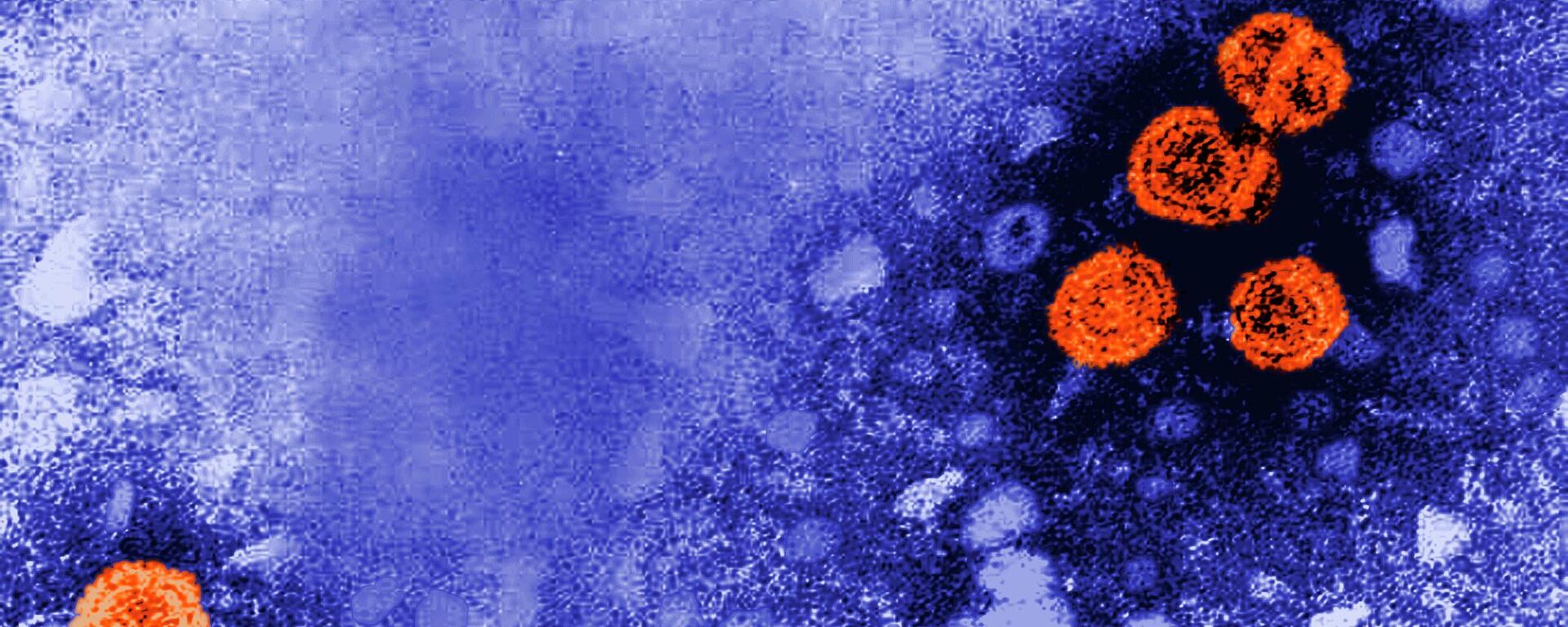China Enhances Medical Checks for Arrivals to Prevent Introduction of Acute Hepatitis in Children

© AFP 2023 / STR
Subscribe
According to a statement sent to the Global Times on Monday, China's General Administration of Customs has made arrangements to prevent the introduction and spread of acute, severe hepatitis of unknown origin in children which have been reported in multiple other countries and regions.
The arrangements include enhancing health declarations, temperature monitoring and medical checks for arrivals from the affected countries and regions.
According to the World Health Organisation (WHO), as of 1 May, 20 countries have reported at least 228 acute severe hepatitis of unknown origin in children and 50 suspected cases. Among them, 14 countries in Europe have been affected, and cases have also been reported in the Americas, the Western Pacific and Southeast Asia. The cases taken into consideration mainly ranged between the ages of 1 and 16. In China, cases of this acute hepatitis of unknown origin have not yet been detected.
The statement sent by the Chinese customs authority said that in response to the public health emergency, the administration has made full use of the global epidemic monitoring network, collecting daily information about the acute hepatitis at home and abroad and paying close attention to the epidemic development in the affected areas as well as to their response. These extensive measures can provide important data for subsequent risk assessment work.
The customs authority has requested all the customs in China to enhance health declarations, temperature monitoring and medical checks for arrivals from the affected countries. Passengers, especially children, with symptoms such as abdominal pain, diarrhea, vomiting and jaundice, who voluntarily report or are found at the scene, should undergo medical inspection in accordance with prescribed procedures. After medical checks, passengers suspected of suffering from the acute severe hepatitis of unknown origin should be transferred to designated medical institutions for further diagnosis and treatment.
According to the World Health Organisation (WHO), as of 1 May, 20 countries have reported at least 228 acute severe hepatitis of unknown origin in children and 50 suspected cases. Among them, 14 countries in Europe have been affected, and cases have also been reported in the Americas, the Western Pacific and Southeast Asia. The cases taken into consideration mainly ranged between the ages of 1 and 16. In China, cases of this acute hepatitis of unknown origin have not yet been detected.
The statement sent by the Chinese customs authority said that in response to the public health emergency, the administration has made full use of the global epidemic monitoring network, collecting daily information about the acute hepatitis at home and abroad and paying close attention to the epidemic development in the affected areas as well as to their response. These extensive measures can provide important data for subsequent risk assessment work.
The customs authority has requested all the customs in China to enhance health declarations, temperature monitoring and medical checks for arrivals from the affected countries. Passengers, especially children, with symptoms such as abdominal pain, diarrhea, vomiting and jaundice, who voluntarily report or are found at the scene, should undergo medical inspection in accordance with prescribed procedures. After medical checks, passengers suspected of suffering from the acute severe hepatitis of unknown origin should be transferred to designated medical institutions for further diagnosis and treatment.
According to the situation of global epidemic monitoring, the customs authority has prepared experts in infectious diseases, surveillance and early warning, pathogen biologists from Chinese CDC and customs specialists to launch a targeted risk assessment of an epidemic spread in the country, and to provide scientific basis for prevention and control measures in customs ports.
The customs authority has also strengthened communication with local foreign affairs, commerce, health, civil aviation, tourism and education departments, enhancing multi-departmental joint prevention and control in order to prevent the spread of the epidemic.
Symptoms of acute severe hepatitis of unknown origin in children include jaundice and gastrointestinal symptoms such as vomiting, diarrhea, and abdominal pain, according to the statement by the customs authority. During the entry and exit process, the authority urged travelers, especially those with children who have gastrointestinal symptoms and jaundice to report to customs for prompt medical treatment. The WHO recommended that hand washing can help reduce the spread of many common infections, said the statement.
The customs authority has also strengthened communication with local foreign affairs, commerce, health, civil aviation, tourism and education departments, enhancing multi-departmental joint prevention and control in order to prevent the spread of the epidemic.
Symptoms of acute severe hepatitis of unknown origin in children include jaundice and gastrointestinal symptoms such as vomiting, diarrhea, and abdominal pain, according to the statement by the customs authority. During the entry and exit process, the authority urged travelers, especially those with children who have gastrointestinal symptoms and jaundice to report to customs for prompt medical treatment. The WHO recommended that hand washing can help reduce the spread of many common infections, said the statement.
*This article was originally published in the Global Times.

